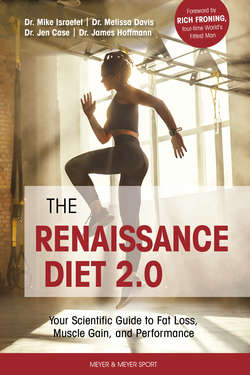Читать книгу The Renaissance Diet 2.0 - Mike Israetel, James Hoffmann - Страница 82
На сайте Литреса книга снята с продажи.
Bedtime
ОглавлениеBedtime meals have very similar constraints to meals that precede other low-activity periods, but there are some unique considerations for this meal. Ideally the pre-bedtime meal should be right before bed for maximum amino acid titration overnight. Eating too close to bed can, however, cause gastrointestinal distress or interfere with sleep quality for some. Similarly, fat slows protein absorption, so it offers us the ability to extend an anabolic and anti-catabolic environment longer into the night, but some research has indicated that eating large amounts of fat in the pre-bedtime meal may interfere with sleep as well. Thus, although eating closer to bedtime and adding fats to the bedtime meal is advantageous, some individuals may have to experiment with bedtime meal timing and fat content and make trade-offs of maximum results for quality sleep.
There have been proponents of waking during the night to eat a meal in order to minimize muscle loss risk further. The detrimental effects to sleep quality which impact recovery and muscle growth, however, likely make any benefits of this practice moot. There is also some evidence that for best intestinal health, periods without nutrient ingestion might be needed. It is possible that nutrient sensitivity is improved by the lack of nutrient intake during sleep, but it is unlikely that this means that we should fast for any duration longer than the sleeping period.
Figure 4.11 A sample diet across a training day for a 240-lb. athlete. Daily macros are split into five meals, with protein held steady meal to meal, carbs heavier around the workout, and fats kept lower near the workout.
